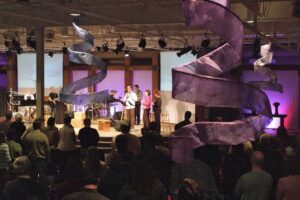Knowing Your Audience Makes Preaching Effective
Knowing Your Audience Makes Preaching Effective
Another thing we learn from advertising as we approach our preaching: Knowing your audience makes preaching effective in the minds and hearts of the hearers. This is part of a series of posts on this subject. The first one is here.
 The link here will direct you to an article about how Lean Cuisine declined precipitously in their sales. Here’s a quote from that article:
The link here will direct you to an article about how Lean Cuisine declined precipitously in their sales. Here’s a quote from that article:
- Rising rates of female employment meant less time for cooking and increased demand for convenient meal options
- Increasing health consciousness and demand for lower calorie foods, especially among women
- Effective marketing campaign positioning Lean Cuisine as a balanced, nutritious meal option for weight control
- Limited competition in the frozen meals market at the time
By the late 1990s, Lean Cuisine had become the top frozen dinner brand in the U.S., controlling 31% of market share.
What Happened?
Those that study the phenomenon of lost market share for Lean Cuisine note that the company had quit listening to their users. Back in the 80’s and 90’s diet was a bit seller. However, somewhere in the early 2000’s, that began to change. The company did some research to see what was happening with their customers after 5 straight years of decline. What they found was the following:
- Customers now focused less on dieting, and more on healthy lifestyles;
- They also found that some people reported being embarrassed purchasing Lean Cuisine because the perception was that this meal was used by lonely single women who were dieting.
They changed their advertising and sales went up $56 million in one year.
What Does This Have to Do With Preaching Effectiveness?
 Simply this: the more you tailor your message to your audience, the more effective you will be. Knowing your audience makes preaching effective for your hearers. Consider some of the following things that might impact your hearers’ ability to let your message get through the protective grid we all have:
Simply this: the more you tailor your message to your audience, the more effective you will be. Knowing your audience makes preaching effective for your hearers. Consider some of the following things that might impact your hearers’ ability to let your message get through the protective grid we all have:
- Geographical area. Some subjects that I preach in Michigan where I live might be less acceptable in the Deep South.
- Age range of your congregation. Their age and life experience could impact the ability of people to “hear” you. I remember being at dinner celebrating an organization that provided housing for elderly people. Someone invited a college-age group of men to sing for “entertainment”. One of the songs they sang was supposed to be funny, but missed the target. The song was about a man who kept having wives die on him, and he would just move on to the next one. After they sang a man got up and said, “God forgive those men for making fun of death.” That’s an extreme example, but consider how the age group of your audience might impact its ability to listen to you and accept your message.
- Consider the values of your congregation. Is your congregation middle class? Upper middle? Lower middle? Poor? The reality of their values will impact the effectiveness of you messages. When I made the move from a congregation that was made up primarily of lower middle class people to one the was made up largely of upper middle class, I found I had to change my illustrations.
- What about learning styles? An African-American friend reminds me that black Americans have a different learning style. They learn not so much by reading books or listening to lectures as to interacting with a professor and trying out new skills. He told me this as we were talking about the educational effectiveness of our denominational seminary.
The point is this: knowing your audience makes preaching effective for your hearers.
How Do You Get To Know Your Audience?
 So, if knowing your audience makes preaching effective, how do you get to know your church? Some suggestions:
So, if knowing your audience makes preaching effective, how do you get to know your church? Some suggestions:
- Listen. In church gatherings listen to the conversations. What do people talk about?
- Do research. Of course, you can’t spend millions as an advertiser might. However, you can meet with leaders and ask questions. Learn about the area, how it developed. Ask questions about the history of the church. The last church I served met in an old, over one hundred year old piano factory. That building formed who felt comfortable coming in. What does the architecture of your building tell you about the values of the church?
Conclusion
The more you tailor the age-old gospel to your audience, the more effective you will be in moving them into life-changing experiences of God’s grace.



